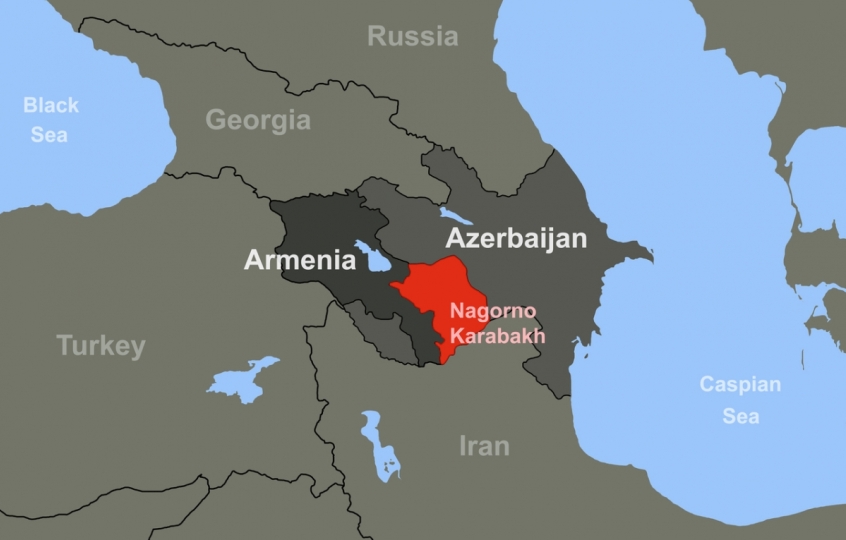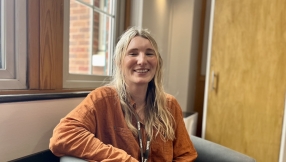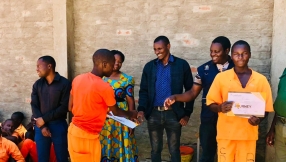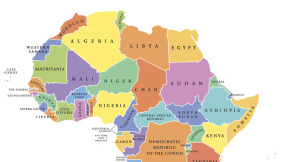
(CP) The United States government has condemned Azerbaijan for blocking food and essential supplies to Nagorno-Karabakh, raising concerns over a genocide by starvation perpetrated against the region's 120,000 ethnic Armenians. Sunday marked the 266th day of the region's siege by Baku.
As Nagorno-Karabakh has been under varying degrees of blockade since December 2022 and completely cut off from Armenian supplies since mid-June, the U.S. State Department expressed deep concern over the "deteriorating humanitarian conditions" in the region due to the blockade of food, medicine and other essential goods.
The department called for the immediate reopening of the Lachin corridor, which connects Nagorno-Karabakh to Armenia, for humanitarian and commercial traffic and urged officials from Baku and Stepanakert to convene without delay to discuss the crisis.
Luis Moreno Ocampo, the former chief prosecutor of the International Criminal Court, warned last week that Azerbaijan was preparing for genocide against ethnic Armenians in Nagorno-Karabakh, according to The Associated Press.
In a report, Ocampo said there was a "reasonable basis to believe that a genocide is being committed." It emphasized that starvation was being used as an "invisible genocide weapon" and called for the U.N. Security Council to intervene — a necessary step since Azerbaijan is not a signatory to the statute that created the international court.
Azerbaijan regained control of territories surrounding Nagorno-Karabakh after a six-week war with Armenia in 2020. A Russia-brokered armistice left the region connected to Armenia only by the Lachin Corridor, where Russian peacekeepers were supposed to ensure free movement.
Hikmet Hajiyev, an assistant to Azerbaijan President Ilham Aliyev, dismissed Ocampo's report as biased and containing "unsubstantiated allegations."
In June, the Switzerland-based human rights group Christian Solidarity International drew attention to the fact that the only way for sick Armenians to leave the region for medical treatment was to go in vans operated by the International Committee of the Red Cross, which was allowed to make occasional visits to Nagorno-Karabakh.
"Azerbaijan has the final say on who can leave the territory. Until recently, patients who go to Armenia for treatment could take along a caregiver — a spouse, for example — and their children under 5, so that they could continue to take care of them," CSI said, adding, "On July 14, Azerbaijan changed the 'rules.' Now, no patients can take along their children, no matter what their age."
In December, alleged demonstrators from Azerbaijan blocked the Lachin Corridor, and Baku later established a military checkpoint there.
In Kornidzor, near the Azerbaijan border, 19 trucks loaded with 360 tons of essential supplies have been parked for two weeks, awaiting permission to cross, Vardan Sargsyan, a representative of a crisis management working group for Nagorno-Karabakh set up by the Armenian government, told the AP late last week.
The ICRC also reported difficulties in delivering aid to the region.
Azerbaijan also blocked a French humanitarian convoy for the second time in weeks, OC Media reported last week. The convoy, accompanied by the Mayor of Paris Anne Hidalgo, was barred entry at the Azerbaijani checkpoint on the Lachin Corridor.
France has supported Armenia in its efforts to lift the blockade. Both Armenia and Nagorno-Karabakh reject Azerbaijani proposals to send aid through Azerbaijani-controlled territory.
Azerbaijan continues to deny that the region is under blockade as the humanitarian situation worsens.
The Nagorno-Karabakh conflict is a long-standing dispute between Armenia and Azerbaijan over the Nagorno-Karabakh region.
The region is recognized internationally as part of Muslim-majority Azerbaijan even though it has a majority Armenian population. It is controlled by ethnic Armenians as the unrecognized Republic of Artsakh, a de facto independent state not recognized by the United Nations.
"A process of genocide has been underway since the Ottoman massacres of Armenians in the late 19th century," CSI President John Eibner told The Christian Post in February. "What is generally called the Armenian Genocide (1915-'18) was, in fact, a broader genocide of Christians, including the Syriacs/Assyrians/Aramaeans. It was the high point of a process that continues in waves until the present day," he said.
"It continued in the Caucasus after the end of the First World War and was only suspended by the imposition of Soviet rule. With the collapse of the Soviet Union, the process resumed in the first Karabakh war, again two years ago in the second Karabakh war and now in the strangulation of Karabakh by means of blockade."













